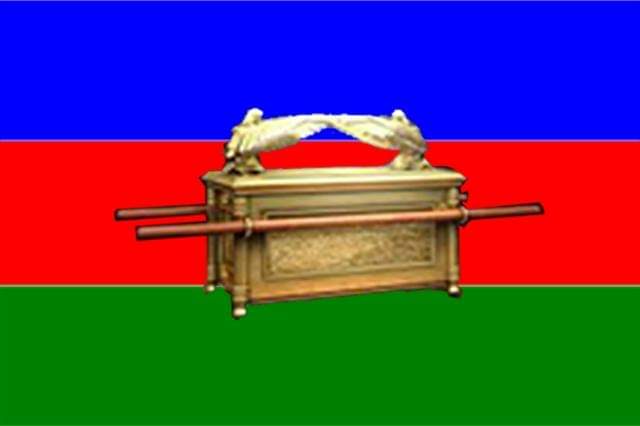By Robinson Erebi
Thank you for reading this post, don't forget to subscribe!“Now I know that the LORD is greater than all gods: for in the thing wherein they dealt proudly he was above them” -Exodus 18:11

The Ijaws are believed to be descendants of Biblical Noah. A nation of abundant resources and great potentials, their war deity “Egbesu” derived its powers from the Ark of the Covenant, which was divinely given to the Israelites by Almighty God. Egbesu is a divine power given only to the Ijaw to defend them against injustice. The modern Ijaw covenant anchored on resource control and self-determination, as it has been from our ancestors since colonial times to date, is being propelled by a divine force in the land that the God of Israel has given them for an inheritance, a land that is flowing with oil and great cities in the Niger Delta.
According to the Bible, the Ark of the Covenant, also known as the Ark of the Testimony, was a wooden chest clad with gold containing the two stone tablets of the Ten Commandments This was used by Joshua in passing the Jordan and defeating enemies in battle. For the Izon Ibe (Ijaw nation), the national god is often visualized as a partner in the creation of the state with the founder of the dominant dynasty. Thus, the truthful struggle of Ijaws to be free from slavery of neo-colonialism is perpetually inspired and motivated by the Ijaw national god called ‘Egbesu’. However, this ancient Egbesu cult of the Ijaws declined after the successful British occupation of the Ijaw lands in the late 19th century, and for some time most Ijaws only knew of the cult through folklore and traditional war songs.
The bible tells us that, approximately one year after the Israelites’ exodus from Egypt, the Ark was created according to the pattern given to Moses by God when the Israelites were encamped at the foot of biblical Mount Sinai. Thereafter, the gold-plated acacia chest was carried by its staves while en route by the Levites approximately 2,000 cubits (approximately 800 meters or 2,600 feet) in advance of the people when on the march or before the Israelite army, the host of fighting men. When the Ark was borne by Levites into the banks of the Jordan River, the waters parted as God had parted the waters of the Red Sea, opening a pathway for the entire host to pass. The walls of the city of Jericho were shaken to the ground with no more than a shout from the army after the Ark of the Covenant was paraded around them for seven days by Levites accompanied by seven priests sounding seven trumpets of rams’ horns. When carried, the Ark was always hidden under a large veil made of skins and blue cloth, always carefully concealed, even from the eyes of the priests and the Levites who carried it. God was said to have spoken with Moses “from between the two cherubim” on the Ark’s cover. (Exodus 26:10-37 refers)
For 40 years, Israel had journeyed a circuitous route through the wilderness, but not because they were following their leader. Quite the opposite was true—with failing faith; they had refused to obey God and conquer Canaan. So they wandered.
Finally, the new generation was ready to cross the Jordan and possess the land. Having distinguished himself as a man of faith and courage (he and Caleb gave the minority scout report recorded in Numbers 13:30–14:9), Joshua was chosen to be Moses’ successor This book records Joshua’s leadership of the people of God as they finish their march and conquer the Promised Land.
In order to appreciate the religious connection between Israel and the Ijaw nation, let us look at a brief summary of the Israelites crossing of the Jordan in the book of Joshua chapter 3:1-17:
Crossing the Jordan River was not as easy as the Twon-Brass River by boat with over 600,000 people. Joshua and the Israelites pack their tents and head towards the Jordan River, preparing for their big water crossing; setting up camp for the night, and Joshua tells Israel that they must purify themselves. And they should follow the Ark of the Covenant of the Lord their God at a distance of a half mile. Not an inch more! As Israel is preparing to cross the Jordan, one man from each tribe is selected to carry the Ark into the water. When the feet of the ark bearers enter the water, the Jordan begins to flow like a wall to their right and to their left, just like the Red Sea in Exodus.
The book notes that the Jordan River is in flood at this point in time. Otherwise, this wouldn’t be so impressive. Once all of Israel has made it to dry land, the priests bearing the Ark step out of the Jordan, and its waters return to normal. Very cool. And when everyone was on the other side, the priests crossed over with the Ark of the Lord. The armed warriors from the tribes of Reuben, Gad, and the half-tribe of Manasseh led the Israelites across the Jordan, just as Moses had directed. These warriors—about forty thousand strong—were ready for battle (Joshua 4: 11-12)

In Africa, Egbesu is the god or deity of warfare of the Ijaw peoples of the Niger Delta region. Egbesu is the spiritual foundation for combating evil. The Egbesu force can only be used in defense or to correct an injustice, and only by people who are in harmony with the universe. The symbol of this divine force is the leopard. In recent times, members of the cult, also known as the Egbesu Boys, have been fighting against authorities in the Niger Delta in response to environmental and other problems caused by oil exploitation, and lack of investment of oil revenue in the local economy. Many young men have joined the cult, undergoing secret initiations by powerful witchdoctors who impart the supernatural powers of Egbesu. The initiation involves the subject being etched with cicatrices on some hidden parts of the body, and some members also wear amulets. The followers often believe the charms and the cult initiations make them bulletproof.
Some interesting attributes of the Ark of the Covenant in comparison to “Egbesu” are the divine presence of the Almighty God, abhorrent to sin and injustice. A case in point is Israel’s battle to conquer Ai they were defeated for the first time.
Approximately three thousand warriors were sent for that battle, but they were soundly defeated because of the sin of Achan. The men of Ai chased the Israelites from the city gate as far as the quarries, and they killed about thirty-six who were retreating down the slope. The Israelites were paralyzed with fear at this turn of events, and their courage melted away. God was angry with Israel, but Joshua prayed, and the culprit confessed as we read in Joshua 7:19-26:
“ Then Joshua said to Achan, “My son, give glory to the Lord, the God of Israel, by telling the truth. Make your confession and tell me what you have done. Don’t hide it from me.” Achan replied, “I have sinned against the Lord, the God of Israel. For I saw a beautiful robe imported from Babylon,* two hundred silver coins, and a bar of gold weighing more than a pound. I wanted them so much that I took them. They are hidden in the ground beneath my tent, with the silver buried deeper than the rest.”
So Joshua sent some men to make a search. They ran to the tent and found the stolen goods hidden there, just as Achan had said, with the silver buried beneath the rest. They took the things from the tent and brought them to Joshua and all the Israelites. Then, they laid them on the ground in the presence of the Lord. Then Joshua and all the Israelites took Achan, the silver, the robe, the bar of gold, his sons, daughters, cattle, donkeys, sheep, tent, and everything he had, and they brought them to the valley of Achor. Then Joshua said to Achan, “Why have you brought trouble on us? The Lord will now bring trouble on you.” And all the Israelites stoned Achan and his family and burned their bodies. 26 They piled a great heap of stones over Achan, So the Lord was no longer angry”.
Thereafter, Israel returned to battle and conquered Ai (Joshua 8:1-29).
*Robinson Erebi is a Freelance Journalist and Public Affairs Commentator writing from Yenagoa, Bayelsa State, Nigeria.
Kindly share





